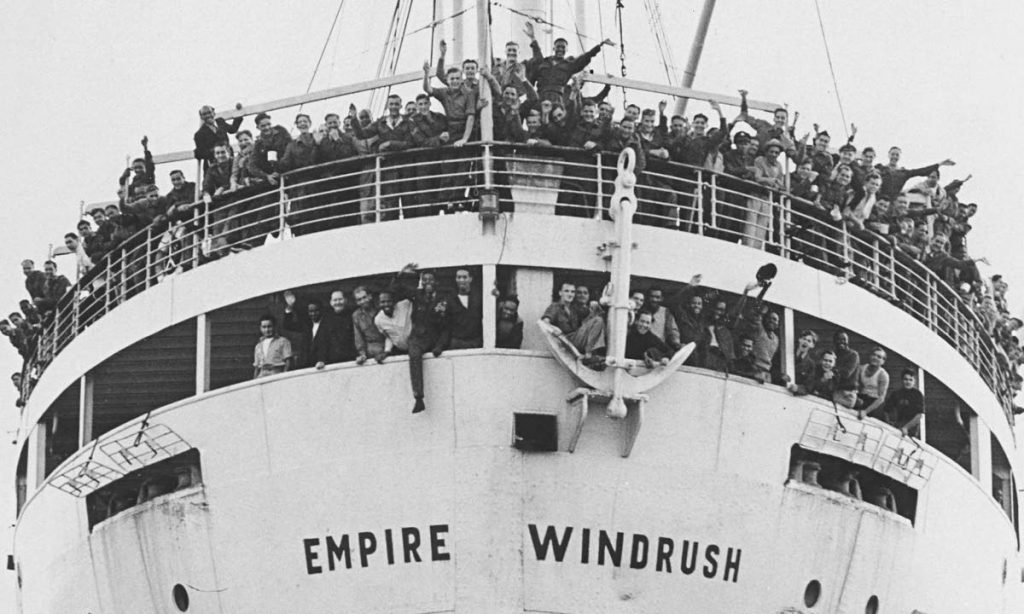Life too comfortable

Comfort. This was what perhaps accounted for the failure of many West Indians of the Windrush generation to have their status regularised in the United Kingdom during the late 1940s and 50s, historian Gerard Besson believes.
“What has always puzzled me about this Windrush issue is how come so many West Indians did not get their papers organised because, after all, they were there,” he said in a Sunday Newsday interview.
“Many of those who just worked in England and brought up their children, they didn’t have their status regularised and that is the difficulty they subsequently faced.”
Besson offered a scenario, which, he claimed, best represented the reality black West Indians who were part of the Windrush generation.
“Imagine a Trinidadian man goes to England and, perhaps works in the subway, as many West Indians did,” he said.
“They were comfortable because many of them were black people and England in the 1940s and 50s was a very prejudiced place.
“If you were a black person, you would get a flat in Notting Hill (once a run down district in West London) and from the time the landlady see you, she would cringe. But those who managed to get over that bump and get a job, they became comfortable and felt secure. In other words they trusted.
“They were confident that the system would hold true for them, especially if they got over the initial difficulties of being immigrants.”
Giving an idea of the extent to which West Indians and others from Commonwealth territories were entrenched in the UK during that period, Besson, who went to Britain in the early 1960s, said: “When you were in the British subway and the doors of the train were about to close, you would hear either a Bajan accent, Trinidadian accent or Jamaican accent.
“You just assumed the conductor was from the Caribbean. You did not have to see the person.”
He added: “You take a man like that who works on the subway all of his life, fitting in to the British society as best he could and benefited from the various social benefits and perhaps never wanting to come back home, he was never occasioned to get his papers. I think that was why many of them or their children did not have the necessary papers.”
Besson said it was hard for people who were not born in the colonial period to understand the allegiance which TT citizens had for the UK.
“One of the first things I did when I got to England was go look at Buckingham Palace because this is how we were brought up in those days. You wanted to go abroad.”
He recalled that of the seven siblings who lived in a house opposite to theirs in Diego Martin, during his youth, six migrated to the UK.
“It was difficult to stay in Trinidad because the civil service was about one-fifth of the size it is today.
“There were no jobs to get and there were not many businesses in those days. But what you had was a good education. And then you were also brought up in a very civil way because that is how life was even for the poorest of the poor people long ago.”
Besson spoke in the wake of last week’s development in which members of the British government called for descendants of the Windward Generation, who are deemed to be illegal immigrants, to be deported.
The decision triggered outrage among West Indians in the UK and the Caribbean.
This caused British Prime Minister Theresa May to apologise to Caricom leaders on Friday during the closing session of the Commonwealth Heads of Government Meeting (CHOGM).
She said members of the Windrush generation had contributed immensely to the development of the UK.
“We are all stronger for their contributions,” she told delegates.
May said later that West Indians affected by the immigrant crackdown would be compensated for the “pain inflicted by the debacle.”
This year marks the 70th anniversary of the arrival of the first wave of West Indians to UK shores.
The Windrush generation is the name often ascribed to West Indian immigrants who sailed from Jamaica to Britain on board the MV Empire Windrush in 1948.
Docking at Tilbury with nearly 500 young West Indians on board, mostly men, it signalled the start of a wave of post-World War II migration of Caribbean people in search of better work and opportunities in the UK.
Besson estimates that between 1950 and 1960, an estimated 4,000 people emigrated from Trinidad.
“This is a very small number. It was a much larger number from Barbados and perhaps Jamaica had the biggest of all. But Trinidad did not have such a large exodus of people of the so-called Windrush generation as far as I gather.”
Saying that people went to the UK for all kinds of reasons, Besson said although the colonial system had its faults and drawbacks with regard to colour prejudice, it had produced an excellent secondary education system, which attracted many people to the country.
“What that really meant is that people who received a secondary education, because there was very little future for people who received a good education and who grew up in middle class societies in the islands. They had to go away to make their fortunes.”
Referring to TT, Besson said the largely black immigrants sought respectability.
“It was their ambition to play the piano, go to church, and bring up your children in a certain way. So, there was no question of going anywhere else. They spoke English and were convinced they could fit in.”
Besson said, however, that many of those ambitions were dashed when they came face to face with the English people.
“That was a different kettle of fish.”


Comments
"Life too comfortable"